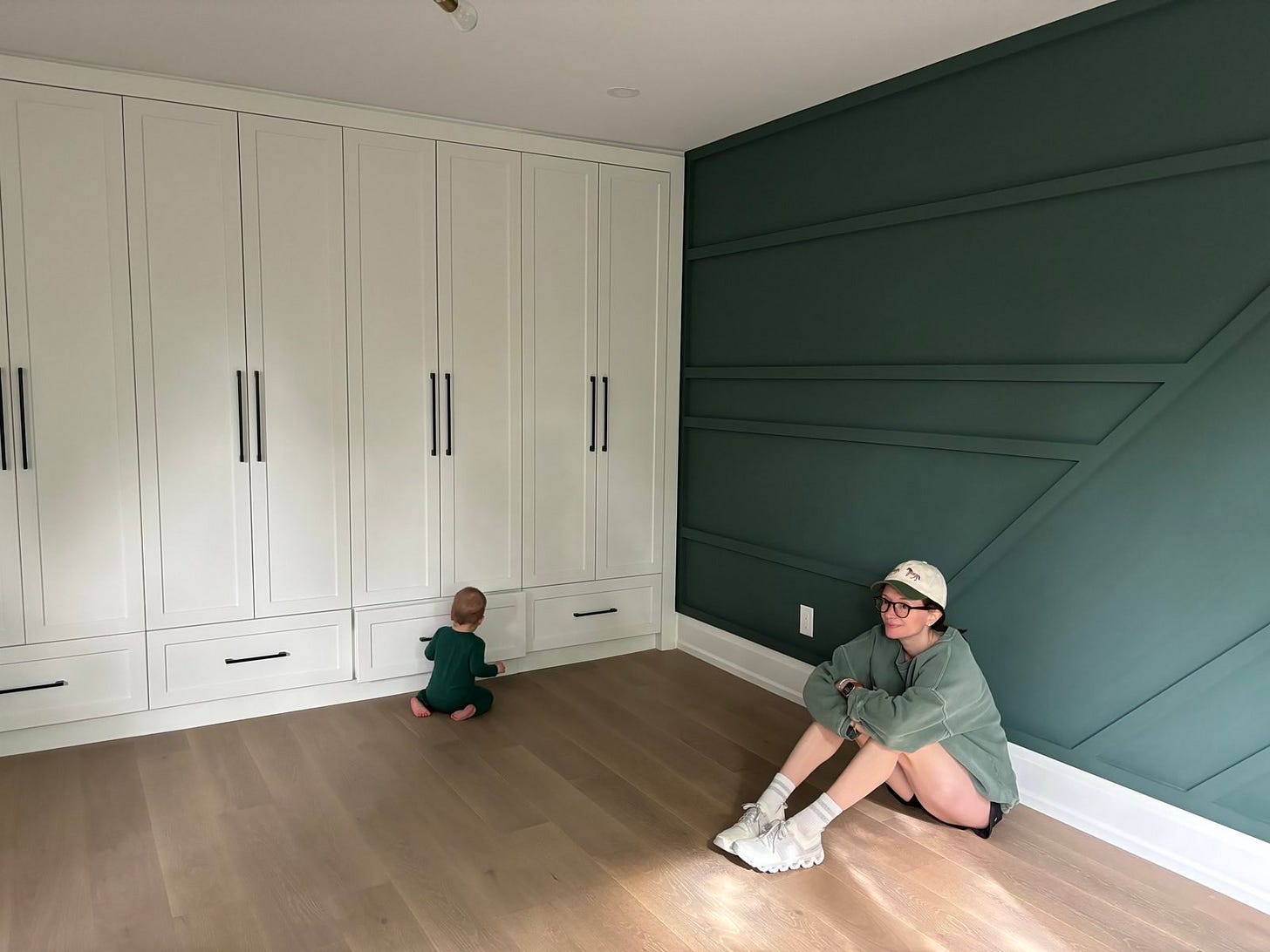Last week, David and I were interviewed together for an NPR show (I’ll share the link when it’s out). The host asked thoughtful questions about Unfit Parent and how we navigate parenting together as an interabled couple.
After we finished the interview, we laughed together about how we had avoided the details of a huge part of our lives: parenting an autistic kid. That night in bed, after an endless bedtime, I quipped, “Imagine if the thing that defined our days is that I can’t stand.”
David and I have a shared understanding of what’s off-limits when it comes to talking about our kids. But that means that while I work so hard to tell the truth about living in this body, I leave a lot out about living in my life.
The other day, Virginia Sole-Smith posted on IG about a book written by three moms about parenting autistic kids. I’ve read the book. And I have some feelings. And I don’t think they are just ego feelings because it came out around the same time mine did, and it was a NYT Bestseller. (Though, of course, there is a long history of things about disabled people being more palatable than things by disabled people.)
The book does something that I don’t do — it shares a lot of details about the authors’ kids. And it brings up a question I think about often. If parenting takes up most of our time/brains/energy, and we need to tell stories to survive, how do I write about our kids who are independent people who deserve consent?
A lot of parenting writing ends up flimsy and false because there is a notable absence of, well, the kids.
My policy so far has been this: I imagine K and F reading my newsletters, books, essays, and if I feel guilty, I change something. (But are the parts I’m leaving out dictated by my persistent internalized ableism? Am I deciding what they should be ashamed of?)
Books change minds, which shift, eventually, policy. Sharing details matters. We need narratives, or nothing seems real. But which families, and unconsenting children, should be sacrificed on the altar of public perception?
I’d love to hear how you all think about this, as readers and writers. I know the gnarliest stories from parenting can be a lifeline, but what do you think should be kept private? What are the risks and benefits of telling the truth about our kids?






I love this question and I think so much of what you shared in Unfit Parent helps me orient to what and how I share about it. Yes, of course, there are those moments when I just need to blow off steam with a close friend or my co-parent about something my kid is doing that is driving me crazy. But most of the time, the reason I am struggling is not because of my kid - it's because we are steeped in systems that are wildly unsupportive and do not seek to understand diverse perspectives and want to judge him (and me) instead of trying to understand what is going on. So when I share more publicly about the hard parts of parenting I try really hard to come at it from that perspective, which has actually been really helpful in reorienting my own perspective on what is going on. (I'm not terrible at parenting - I'm working really hard to parent in a very broken system.)
I think about this so much. It isn't my story to tell, but it is also such a big part of my story as a mother and being able to share the challenges, especially when they not typical of most kids or families, really helps me feel less alone. I have found some parenting groups that can be a great outlet for sharing stories privately and supporting each other but I do sometimes want to write more specifically about my experiences as a parent and I know it can mean so much to know that you are not alone. But, of course, it is more important for my kids to know that I won't share details of their lives.